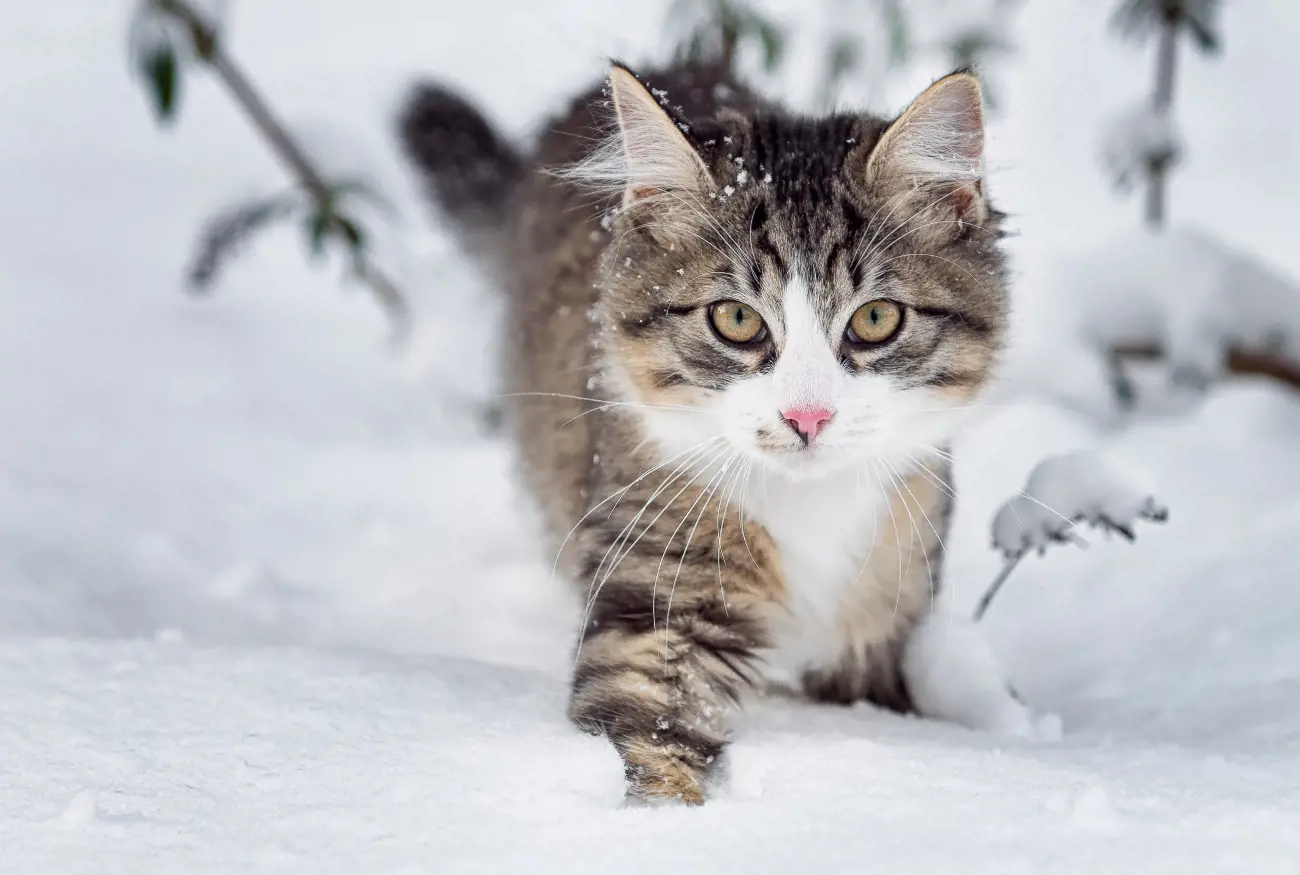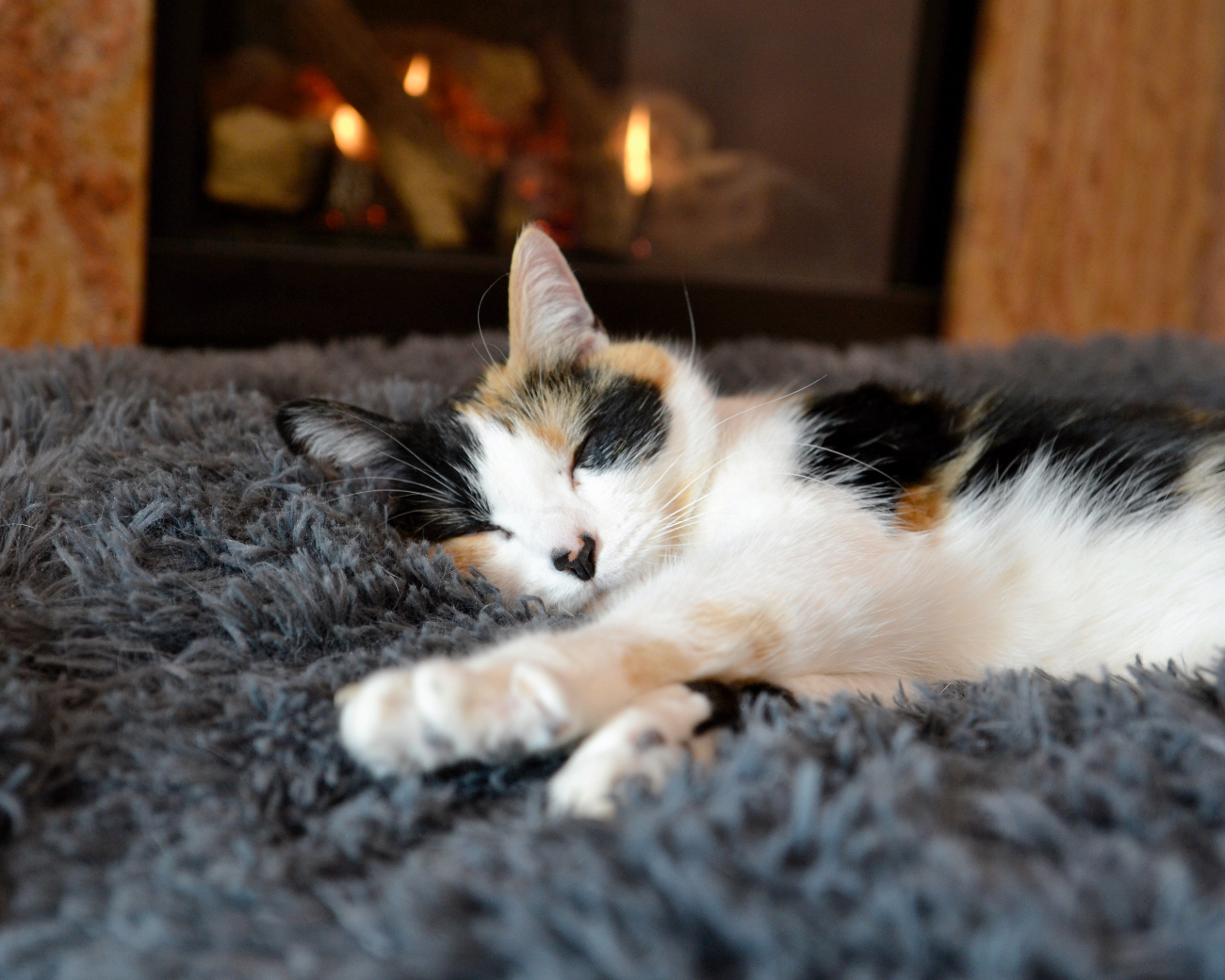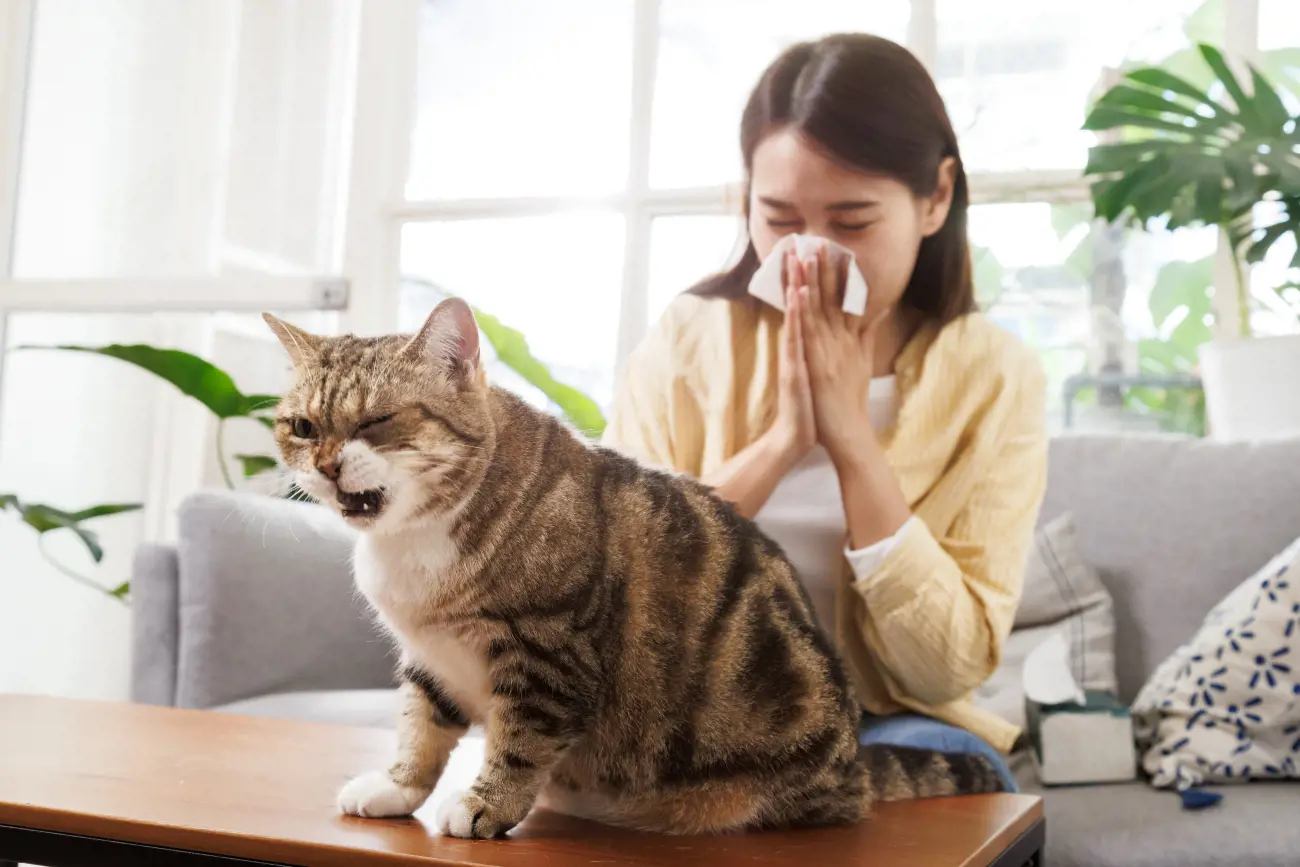Feline slumber: Understanding why cats sleep so much in winter
11th October, 2024

As the winter months roll in, you might find your feline friend spending more time curled up in their favourite spot, napping away most of the day. But why do cats sleep so much in the day? Some key reasons are due to a conservation of energy, limited daylight and for indoor cats, being in an indoor environment.
Is it a cause for concern? As concerned cat owners, you might find yourself questioning if this behaviour is normal. This guide will explore why your cat might be catching up on extra sleep during the colder months and what factors might be influencing their slumber habits.
Feline sleep patterns
Before we dive into why cats sleep so much in the day, let's first understand their typical sleeping pattern. Cats are crepuscular creatures, meaning they are most active during dawn and dusk. Their ancestors, wild cats, followed this schedule to hunt when their prey was most active.
Although our domestic cats no longer need to follow their set sleeping schedules for hunting, the instinct persists. This means that your fur baby is likely to be more active during the twilight hours, napping throughout the rest of the day to conserve energy.
Age and sleep
A cat’s age significantly influences the amount of sleep they need. Kittens, still growing and developing, may require up to 20 hours of sleep per day.
Adult cats, on the other hand, need around 15 hours of sleep, while senior cats (10 years and older) tend to spend more time sleeping due to less activity or the cat's health issues.
Deep sleep vs. Cat naps
Contrary to popular belief, not all cat sleep is deep sleep. Cats doze in a kind of ready position, their senses of smell and hearing in the “on” mode, ready to spring into action.
This 'cat nap', or slow-wave sleep (SWS), makes up about 75% of the cat's sleep time. The remaining 25% is dedicated to deep REM sleep, during which they are less alert and may even dream.
Is my cat really asleep?
Have you ever found yourself staring at your cat, wondering if they are really asleep or just pretending? Cats are known for their ability to sleep for long periods of time, but their erratic sleep patterns can be quite deceiving.
At first glance, it may seem like your cat is in a deep slumber, curled up in a cozy ball. But upon closer inspection, you might notice that their ears are slightly twitching or their eyes are half open. So, is your cat really asleep?
The answer is not always straightforward. Cats have the unique ability to enter a light sleep state known as "cat nap." During this time, they may appear to be snoozing lightly, but they are actually still alert and aware of their surroundings. This allows them to quickly respond to any potential threats or opportunities that may arise.
Why do cats sleep so much in winter?
Now, let's answer your primary question: why do cats sleep so much in winter? Here are some key reasons:
Conservation of energy
Cats are natural predators and hence, require a lot of resting to conserve energy for their hunting activities. Even though house cats don't hunt in the traditional sense, their intense playfulness such as chasing toys or darting up a cat tree mimic hunting behaviours. These activities consume a significant amount of energy, requiring them to rest and recharge.
During winter, the decreased temperature might lead cats to sleep more to conserve body heat and energy. They might also be less active due to the cold weather, leading to increased sleep.
Limited daylight
Winter days are shorter, and there is less daylight available. This change can affect your cat's internal biological clock, leading them to sleep more.
Indoor environment
For indoor cats, the lack of outdoor activities and stimuli during winter could lead to boredom, resulting in more sleep. To keep your cat engaged, consider providing enrichment toys or building a safe indoor climbing space.
Why do cats sleep during the day and stay awake at night?
Cats are crepuscular animals, which means they are most active during dawn and dusk. This behaviour can be traced back to their ancestors who were nocturnal hunters.
By staying awake at night, cats can take advantage of the cover of darkness to hunt for prey more efficiently. Their keen senses, sharp claws, and night vision make them formidable predators under the moonlight.
During the day, cats tend to sleep for long periods. This is because they use less energy for hunting activities during the night.
Cats are known to be opportunistic hunters, meaning they rely on small bursts of intense activity to catch their prey. By sleeping during the day, they are able to replenish their energy stores and be fully prepared for their nocturnal adventures.
Another reason why cats sleep during the day is related to their domestication. Cats have adapted to living with humans, who tend to be more active during the day.
By sleeping while their human companions are busy, cats can ensure that they are well-rested and ready to engage in play or receive attention when their owners are available.
When should you be concerned?
Although it's normal for cats to sleep more during winter, a significant change in your cat's sleep pattern can indicate a health issue. If your cat is sleeping excessively or less than usual, it's advisable to consult your regular vet.
Multiple cat health conditions, ranging from stress and anxiety to diseases like hyperthyroidism and diabetes, can affect your cat's sleep.
Do cats get cold inside the house?
Many people assume that because cats have fur, they are naturally resistant to the cold. However, this is not always the case. While cats do have a layer of fur to help keep them warm, they can still get cold inside the house, especially in colder climates or during the winter months.
Just like humans, adult cats tend feel the chill and may seek out warmer spots in the house to stay comfortable.There are a few factors that can contribute to a cat feeling cold indoor:
- Older cats or those with certain medical conditions may have a harder time regulating their body temperature and may be more susceptible to feeling cold.
- Cats with shorter coats or breeds that are not well-suited for colder weather may also feel the chill more easily.
Why is my cat sleeping all day and not eating?
If you've noticed that your furry feline friend is spending most of their day sleeping deeply and not showing much interest in their food, it's natural to start worrying.
After all, cats are known for their playful nature and healthy appetite. So, why is your cat sleeping all day and not eating? There could be several reasons behind this behaviour.
One possible explanation for your cat's excessive sleepiness and lack of appetite is that they may be feeling under the weather. Cats, just like humans, can sometimes fall ill and experience symptoms such as lethargy and loss of appetite. If you notice any other signs of illness, such as vomiting or diarrhoea, it's important to consult your veterinarian to rule out any serious health issues.
Another reason for your cat's change in behaviour could be stress or anxiety. Cats are creatures of habit and can become stressed due to changes in their environment or routine. This could include anything from a new addition to the family, such as a baby or another pet, to moving houses or even a change in their regular feeding schedule. If you suspect that stress may be the cause, try to create a calm and comfortable environment for your cat and provide them with plenty of reassurance and attention.
It’s also possible that your cat's decreased activity and appetite could simply be due to natural age-related changes. As cats get older, they tend to become less active and have a decreased appetite.
However, it's still important to monitor their behaviour closely and consult with a veterinarian if you have any concerns.
How do cats choose who to sleep with?
Cats are known for their independent nature, but when it comes to choosing who to sleep with, they have their own unique methods. One of the main factors that cats consider is comfort. They will often seek out a warm and cozy spot to curl up in, and if they find a human who provides that, they will likely choose to sleep with them.
Cats also appreciate companionship, so if they feel a strong bond with a particular person, they may choose to sleep with them as a way to feel closer.
Cats are highly sensitive to energy and vibes, so if they sense calmness and relaxation from someone, they will be more inclined to sleep with them. Ultimately, cats choose who to sleep with based on their own preferences and instincts.
Conclusion

In summary, it's perfectly normal for your cat to sleep more during the winter or throughout the day. This behaviour is influenced by their natural instincts, age, and external factors like weather.
However, if you notice any drastic changes in your cat's sleep patterns, don't hesitate to consult your vet. After all, a well-rested cat is a happy and healthy cat!
To ensure the well-being of your beloved cat, consider getting cat insurance. Contact us on 0330 102 5748 or visit our website to get a cat insurance quote for your furry friend.
Helpful Pages
Recent Posts

Why do Great Danes bury their heads?
12/03/25
Find out more about Beagles
28/02/25Pet Insurance Quote
- 98% claims paid *
- Claims paid directly to vets
- 24/7 vet video consultations
- Interest free monthly payments


